This intensely scented blend releases an enveloping aroma, fruity and floral at the same time. Its taste is strong but soft and refined, as it combines multiple delicate flavors with the dominant citrus notes of orange, for a sour and intense touch. Rose petals, lavender, orange blossom, cornflower and marigold release original and intriguing floral nuances on the palate, with a softness enhanced by the orange peel. In addition, the tea adds a touch of color, thanks to the addition of marigold petals. Among the many varieties of black tea, our blend combines the lightness of Ceylon, considered one of the best teas in the world, with Darjeeling black tea, and the intense and medium-bodied ones from South India and China.
With its variety, this apricot and orange tea provides a naturally surprising taste; represents an opportunity for an invigorating break.
The mix of black teas present in our infusion with apricot and orange
Darjeeling tea, from the Indian region of the same name at the foot of the Himalayas, has a delicate and soft taste (reminiscent of some Muscat wines), a fruity aroma with fresh hints. It lends itself well to blends with other black teas.
Ceylon black tea grown in the central-southern area of Sri Lanka; gives a light and fragrant infusion with slightly fruity aromas; a medium persistent and refined flavor that is much appreciated.
South Indian tea, sweet and perfect for being flavored, it makes balsamic flavors that evoke lemon, mint, eucalyptus; ideal for blending with orange and citrus aromas.
Chinese black tea is aromatic, with an intense and rounded flavor, slightly sweet and delicate. Amber in color, its medium body makes it an excellent base to mix with other teas and spices.
What is black tea good for? Properties and benefits
The typical oxidation of black tea can provide nutritional benefits through some compounds in the leaves. First of all, black tea contains polyphenols and flavonoids that are beneficial for health. These antioxidant compounds help our body fight free radicals - unstable molecules that can damage our cells. Phenolic antioxidants make up a considerable part of black tea; in particular, catechins that, thanks to the oxidation process, are transformed into beneficial compounds such as thearubigins, theaflavins and flavonols. This group of polyphenols can help the body protect the heart and circulation, increasing the availability of nitric oxide, which promotes the dilation of blood vessels. Rich in tannins, black tea promotes good digestion, also effective in cases of stomach ache or somewhat heavy digestion. Drinking black tea provides water to the body, helps assimilate food and fights constipation. Theine (caffeine - it is the same molecule) contained in black tea can also have a laxative effect, accelerating intestinal transit. At the same time, thanks to tannins, it provides an astringent effect that reduces irritation caused by some intestinal movements. Black tea affects the intestinal microbiota (microorganisms present in the digestive system) in a positive way: polyphenols are not easily absorbed and remain longer, favoring the growth of some types of healthy bacteria, which promote proper digestion and avoid the feeling of bloating. In particular, this black tea with orange peel, calendula and lavender, helps digestive well-being; in addition to the astringent properties of rose petals and the diuretic properties of cornflower. Black tea contains caffeine (theine), a substance known for its energizing effects, which also improve attention and concentration. Its dose of caffeine can act as a tonic against physical and mental fatigue, avoiding the overly exciting consequences of coffee. In tea, in fact, the amino acid L-theanine calms with its relaxing properties - an action that balances and reduces the stimulating effect of the active ingredient of caffeine; improving attention and energy levels, without having an overly stimulating action. Why does black tea make you lose weight? Some studies have long focused on the ability of some antioxidants in this tea to promote the breakdown and burning of fat; in addition to the properties of caffeine, useful for stimulating the metabolism. For this reason, black tea inserted into a balanced diet, can become an aid in weight management and balance. Another element in favor of weight management is the fact that black tea has diuretic properties - it promotes diuresis and counteracts water retention in the body.
Nutritional values of black tea
It contains antioxidant polyphenols - flavonoids, catechins, flavanols - as well as amino acids including L-theanine. It makes available alkaloids including caffeine, theophylline and theobromine, and mminerals such as fluorine, iron, zinc, magnesium and potassium. Tea also contains tannins, chlorophyll, trace elements and volatile organic compounds, which contribute to its smell and flavour.
How to make black tea infusion
It is easily prepared with hot water at 90/95 °C, in which to infuse 3-5 grams of the mixture every 250 ml (one cup).
Leave to infuse for 3 to 5 minutes and the drink is ready.
Buy our apricot and orange black tea
Our online tea and spice shop allows you to buy loose apricot and orange flavoured black tea, in convenient packs of 25 g, 50 g, 75 g, 100 g, 150 g, 300 g. The loose version in the freshness bag allows you to calculate exactly the grams of product needed for your cup or teapot.
What is the black tea plant?
The origin of this tea comes from the Camellia sinensis plant, a species formed by small evergreen trees, belonging to the Theaceae family. This plant can have different varieties, including the Camellia sinensis sinensis from China and the Camellia sinensis var. assamica, native to northern India - makes Indian black teas. Also called Camellia "type Assam", it often takes the form of a tree rather than a shrub, with large dark green leaves. It is not very resistant to the cold, in fact it grows in areas with mild climates like the original ones. How is black tea obtained? After harvesting, the tea leaves undergo a process of withering, rolling and oxidation. When the leaves are exposed to air for a long time, they come into contact with oxygen and, during this oxidation, the main chemical reactions necessary to transform them into black tea take place. The enzymes break down the chemicals present in the leaves, producing their dark color and the typical smell of the "black tea" so famous in England. What is the difference between black tea and green tea? The process for preparing green tea is similar, but does not involve oxidation of the leaves.
How much black tea can you drink per day? Effects and contraindications
This tea has very few side effects, if consumed in moderate quantities. Given the caffeine content, drinking more than 3-4 cups of black tea per day can cause agitation, rapid heartbeat, insomnia, nausea, headache and stomach pain. Caution is advised in the doses for pregnant and breastfeeding women.

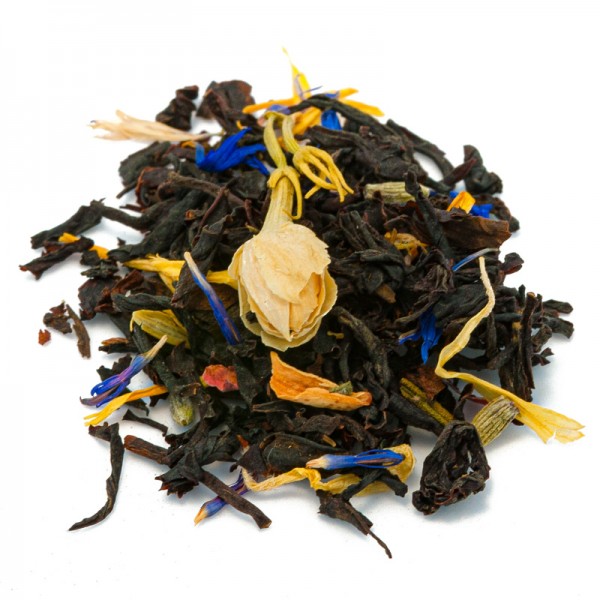









 No reward points for this product.
No reward points for this product.
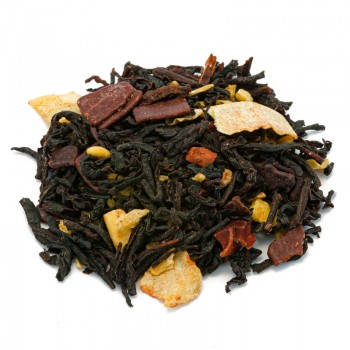
![Black tea Kaproret GFOP [Natura d'Oriente]](https://www.naturadoriente.com/3387-home_default/kaproret-black-tea-gfop.jpg)
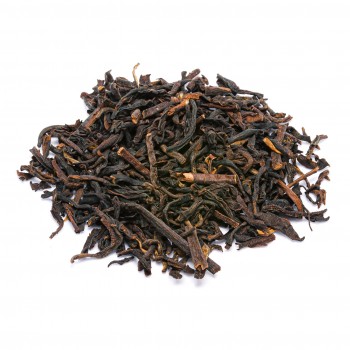
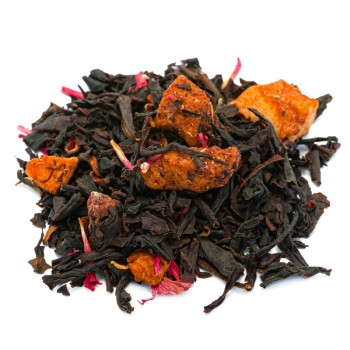
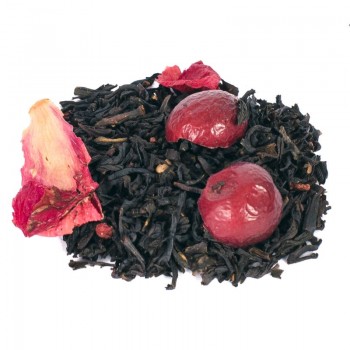
![Black tea Honey Black Formosa [Natura d'Oriente]](https://www.naturadoriente.com/3390-home_default/black-tea-honey-black-formosa-.jpg)
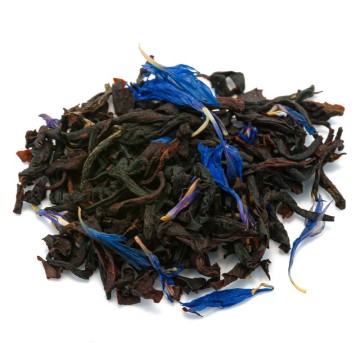
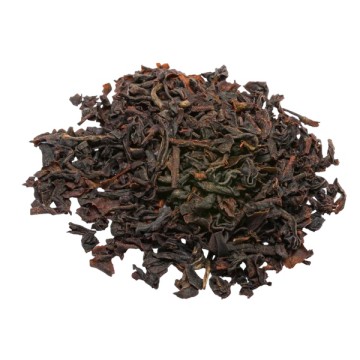
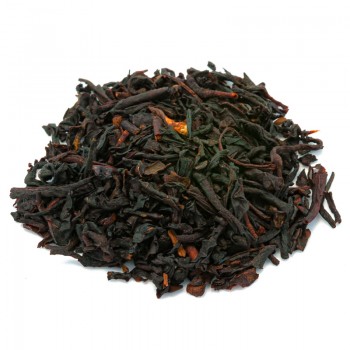
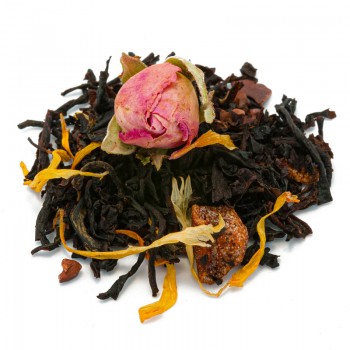

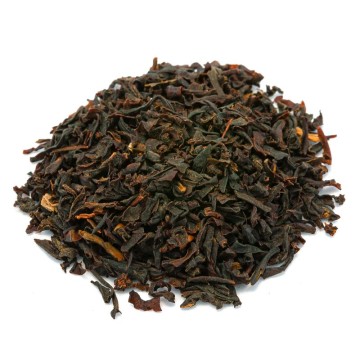
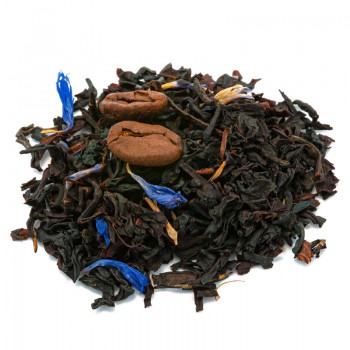
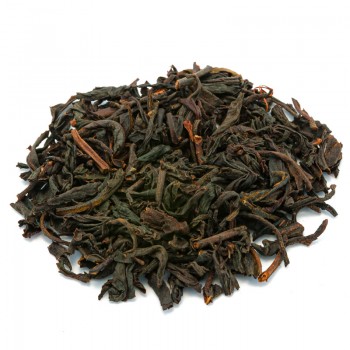
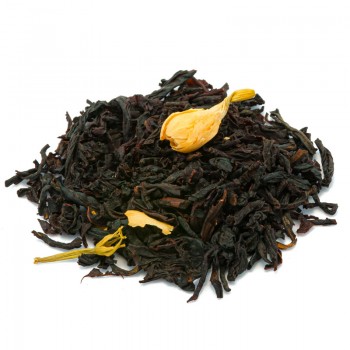
![black tea Irish Rum [Natura d'Oriente]](https://www.naturadoriente.com/3388-home_default/black-tea-irish-rum-.jpg)